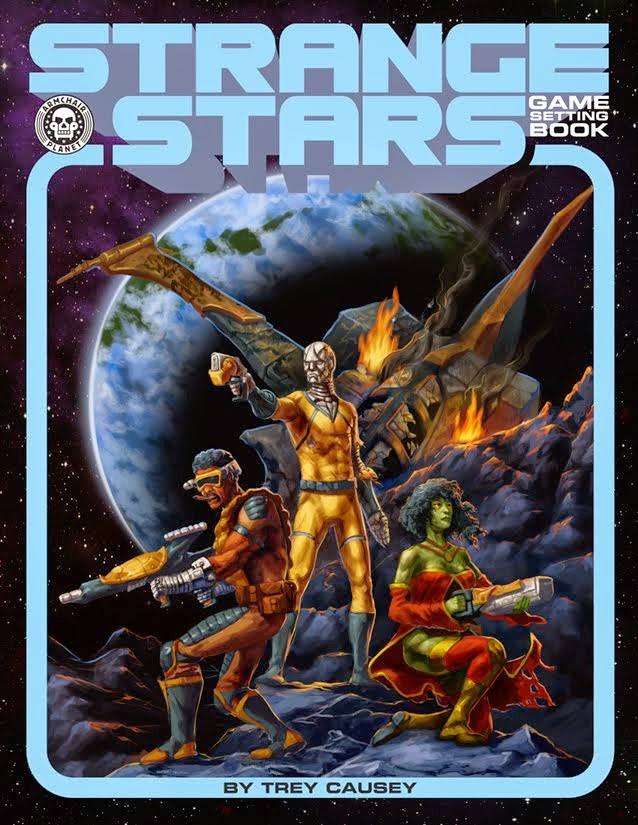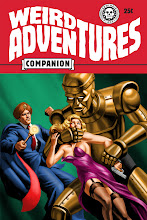In this DIY rpg world, there are a lot of factions, cliques, theorists, declarations of movements, manifestos, categorizations. I'm not really adherent to any of these except in the loosest since of being an rpg enthusiast of a certain vintage, preferring games of a more traditional tabletop lineage (in which I would include most rpgs) rather than strictly story games, and being a member of the Hydra Co-op and enjoying the gaming material written and run by my fellow Hydra heads. I do have things that I like in games and try to produce in the games I run.
It should go without saying, but to make it clear, I don't necessarily think these things are better (though sometimes maybe I do!), they just happen to be my preference. Starting loosely with a list that gets quoted a lot in Old School and related circles that I believe was created by Scrap Princess allow, here's what I like:
1. Interact with the world. I want players to approach the world as if their characters are inhabiting it, not as a gloss over a rules set or just flavor. The world, however, isn't merely composed of (imaginary) physical objects and locations but of (imaginary) social relationships, and conventions of genre or setting.
2. There is nothing that is supposed to happen, but some outcomes are more likely given (1). The story is in the hands of the players, but the world is going to dictate some more likely outcomes of actions. To give absolute, unfettered agency is to violate the first principle, but there is always a high degree of variation within a broad outcome, and the player actions and preferences are going to determine how it all turns out.
3. The player is an actor but also a participant in a social activity. I don't mean actor in the arch sense of the stereotyped thespian behavior, but I mean that the player has the roll of portraying a character, but also in considering (in a somewhat metagame fashion) what makes sense for that character within the larger context of the "story" unfolding. (And by invoking "story" here, I don't mean in a preconceived way. I mean: given the inputs of character, setting, situation, and genre, what seems cool to the player to have happen?) This differs from the stance of strictly playing the character, wherein the player gives no consideration to the big picture, which can lead (in my view) to a player becoming too involved in the character and viewing the character's losses or setbacks as a loss or setback for themselves. Also, "it's what my character would do" can lead to disruptive behavior at the table.
4. It's the player's job to make your character interesting and to make the game interesting for yourself and others. This follows logically, I think, from (3) and (1) and leads directly to (7) below. The GM is also a player in this regard.
5. The character sheet is the mediator between theory and result. Plans and actions should be conceived in line with (1) and a lesser extend (3), but the mechanics of the game should support the actions players are likely to engage in. The character sheet as the rules-based abstraction of the character's capabilities ought to have some role in that, otherwise why not just play pretend and dispense with it?
6. Player skill/talent is important. The way I see rpgs as "winnable" is not primarily in character survival or successfully achieving goals (though those things are far from insignificant) but rather in making the experience more fun or cooler. I like skills and related systems some old schoolers dislike, but I think good, clever roleplay and tactics--defined as ideas that are not merely sensible or logical in the abstract but are also entertaining, spur/inspire players, and show clear consideration and interaction with the sustained, consistent, imaginary world we are involved with--are crucial.
7. Sometimes your character will die, but it's seldom interesting to die pointlessly. Death can be an important possible outcome in rpgs and I don't generally favor removing it as an option (though perhaps some games make a case for this), but I don't find pointless death as a result of computer game style "gotchas" or super-swingy rolls fulfilling. It's more gamey perhaps than I typically want. Often, another sort of setback other than "start over" is a better option to me.
8. It's fun to try new things. New settings, new mechanics--all worth a go. I don't think there is a particular formula of the type of game I want to spend all my time with. To me, it would be akin to eating the same thing every day for lunch. It gets old. Sometimes that even means sampling something you already know you aren't going to like most of the time to see if you enjoy partaking of it rarely.











